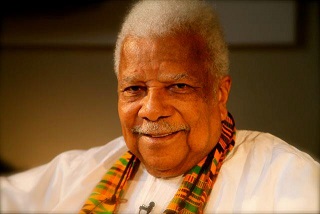Related Research Articles

In modern parlance, a colony is a territory subject to a form of foreign rule. Though dominated by the foreign colonizers, colonies remain separate from the administration of the original country of the colonizers, the metropolitan state. This administrative colonial separation makes colonies neither incorporated territories nor client states. Some colonies have been organized either as dependent territories that are not sufficiently self-governed, or as self-governed colonies controlled by colonial settlers.

German East Africa was a German colony in the African Great Lakes region, which included present-day Burundi, Rwanda, the Tanzania mainland, and the Kionga Triangle, a small region later incorporated into Mozambique. GEA's area was 994,996 km2 (384,170 sq mi), which was nearly three times the area of present-day Germany and double the area of metropolitan Germany at the time.
Decolonization or decolonisation is the undoing of colonialism, the latter being the process whereby imperial nations establish and dominate foreign territories, often overseas. Some scholars of decolonization focus especially on independence movements in the colonies and the collapse of global colonial empires. Other scholars extend the meaning to include economic, cultural and psychological aspects of the colonial experience.

The Wretched of the Earth is a 1961 book by the philosopher Frantz Fanon, in which the author provides a psychoanalysis of the dehumanizing effects of colonization upon the individual and the nation, and discusses the broader social, cultural, and political implications of establishing a social movement for the decolonization of a person and of a people. The French-language title derives from the opening lyrics of "The Internationale".
Postcolonial feminism is a form of feminism that developed as a response to feminism focusing solely on the experiences of women in Western cultures and former colonies. Postcolonial feminism seeks to account for the way that racism and the long-lasting political, economic, and cultural effects of colonialism affect non-white, non-Western women in the postcolonial world. Postcolonial feminism originated in the 1980s as a critique of feminist theorists in developed countries pointing out the universalizing tendencies of mainstream feminist ideas and argues that women living in non-Western countries are misrepresented.

The decolonisation of Africa was a process that took place in the mid-to-late 1950s to 1975 during the Cold War, with radical government changes on the continent as colonial governments made the transition to independent states. The process was often marred with violence, political turmoil, widespread unrest, and organised revolts in both northern and sub-Saharan countries including the Algerian War in French Algeria, the Angolan War of Independence in Portuguese Angola, the Congo Crisis in the Belgian Congo, the Mau Mau Uprising in British Kenya, the Zanzibar Revolution in the Sultanate of Zanzibar, and the Nigerian Civil War in the secessionist state of Biafra.

Indirect rule was a system of governance used by the British and others to control parts of their colonial empires, particularly in Africa and Asia, which was done through pre-existing indigenous power structures. Indirect rule was used by various colonial rulers: the French in Algeria and Tunisia, the Dutch in the East Indies, the Portuguese in Angola and Mozambique and the Belgians in Rwanda and Burundi. These dependencies were often called "protectorates" or "trucial states". By this system, the day-to-day government and administration of areas both small and large were left in the hands of traditional rulers, who gained prestige and the stability and protection afforded by the Pax Britannica, at the cost of losing control of their external affairs, and often of taxation, communications, and other matters, usually with a small number of European "advisors" effectively overseeing the government of large numbers of people spread over extensive areas.

Ali Al'amin Mazrui, was a Kenyan-born American academic, professor, and political writer on African and Islamic studies, and North-South relations. He was born in Mombasa, Kenya. His positions included Director of the Institute of Global Cultural Studies at Binghamton University in Binghamton, New York, and Director of the Center for Afro-American and African Studies at the University of Michigan. He produced the television documentary series The Africans: A Triple Heritage.

Salim Ahmed Salim is a Tanzanian politician and diplomat who has worked in the international diplomatic arena since the early 1960s.
A colonial empire is a collective of territories, either contiguous with the imperial center or located overseas, settled by the population of a certain state and governed by that state.

European colonialism and colonization was the policy or practice of acquiring full or partial political control over other societies and territories, founding a colony, occupying it with settlers, and exploiting it economically. For example, colonial policies, such as the type of rule implemented, the nature of investments, and identity of the colonizers, are cited as impacting postcolonial states. Examination of the state-building process, economic development, and cultural norms and mores shows the direct and indirect consequences of colonialism on the postcolonial states.

The Sultanate of Zanzibar, also known as the Zanzibar Sultanate, was a state controlled by the Sultan of Zanzibar, in place between 1856 and 1964. The Sultanate's territories varied over time, and at their greatest extent spanned all of present-day Kenya and the Zanzibar Archipelago off the Swahili Coast. After a decline, the state had sovereignty over only the archipelago and a 16-kilometre-wide (10 mi) strip along the Kenyan coast, with the interior of Kenya constituting the British Kenya Colony and the coastal strip administered as a de facto part of that colony.
Swahili literature is, generally speaking, literature written in the Swahili language, particularly by Swahili people of the East African coast and the neighboring islands. It may also refer to literature written by people who write in the Swahili language. It is an offshoot of the Bantu culture.

The historical phenomenon of colonization is one that stretches around the globe and across time. Ancient and medieval colonialism was practiced by the Phoenicians, the Greeks, the Turks, and the Arabs.

Black orientalism is an intellectual and cultural movement found primarily within African-American circles. While similar to the general movement of Orientalism in its negative outlook upon Western Asian – especially Arab – culture and religion, it differs in both its emphasis upon the role of the Arab slave trade and the Coolie slave trade in the historic relationship between Africa and the Arab – and greater Muslim – world, as well as a lack of colonial promotion over the Middle East region as was promoted by European orientalism in the same region. The term "black orientalism" was first used by Kenyan academic Ali Mazrui in his critique of Henry Louis Gates, Jr.'s documentary Wonders of the African World. Supporters of this movement include writers such as Chinweizu.
Postcolonialism is the critical academic study of the cultural, political and economic legacy of colonialism and imperialism, focusing on the impact of human control and exploitation of colonized people and their lands. More specifically, it is a critical theory analysis of the history, culture, literature, and discourse of imperial power.

Postcolonial international relations is a branch of scholarship that approaches the study of international relations (IR) using the critical lens of postcolonialism. This critique of IR theory suggests that mainstream IR scholarship does not adequately address the impacts of colonialism and imperialism on current day world politics. Despite using the language of post-, scholars of Postcolonial IR argue that the legacies of colonialism are ongoing, and that critiquing International Relations with this lens allows scholars to contextualize global events. By bridging postcolonialism and International Relations, scholars point to the process of globalization as a crucial point in both fields, due to the increases in global interactions and integration. Postcolonial IR focuses on the re-narrativization of global politics to create a balanced transnational understanding of colonial histories, and attempts to tie non-Western sources of thought into political praxis.
Pakistanism or Pakistanization is a neologism that refers to the continual division of any society along religious lines.

Chandra Talpade Mohanty is a Distinguished Professor of Women's and Gender Studies, Sociology, and the Cultural Foundations of Education and Dean's Professor of the Humanities at Syracuse University. Mohanty, a postcolonial and transnational feminist theorist, has argued for the inclusion of a transnational approach in exploring women’s experiences across the world. She is author of Feminism Without Borders: Decolonizing Theory, Practicing Solidarity, and co-editor of Third World Women and the Politics of Feminism, Feminist Genealogies, Colonial Legacies, Democratic Futures, Feminism and War: Confronting U.S. Imperialism,, and The Sage Handbook on Identities.

Decolonization of knowledge is a concept advanced in decolonial scholarship that critiques the perceived hegemony of Western knowledge systems. It seeks to construct and legitimize other knowledge systems by exploring alternative epistemologies, ontologies and methodologies. It is also an intellectual project that aims to "disinfect" academic activities that are believed to have little connection with the objective pursuit of knowledge and truth. The presumption is that if curricula, theories, and knowledge are colonized, it means they have been partly influenced by political, economic, social and cultural considerations. The decolonial knowledge perspective covers a wide variety of subjects including philosophy, science, history of science, and other fundamental categories in social science.
References
- Kassem-Ali, Jaafar (2004). "Pax Africana and Africa's Re-Colonization," in Debating the African Condition: Governance and Leadership. Africa World Press.
- Kimche, Jon (1971). People and Politics in the Middle East: The Arab-Israeli Conflict-Its Background and the Prognosis for Peace. Transaction Publishers.
- Mafeje, Archie (1995). "Benign Recolonization and Malignant Minds in the Service of Imperialism," in Debating the African Condition: Governance and Leadership. Africa World Press.
- Mazrui, Ali A. (1994). "Recolonization or Self-colonization? Decaying Parts of Africa Need Benign Colonization," in Debating the African Condition: Governance and Leadership. Africa World Press.
- Mazrui, Ali A. (1995). "Self-Colonization and the Search for Pax-Africana: A Rejoinder," in Debating the African Condition: Governance and Leadership. Africa World Press.
- Talpade Mohanty, Chandra (2003). Feminism without Borders: Decolonizing Theory, Practicing Solidarity. Duke University Press.
- Saul, John S. (1993). Recolonization and Resistance: Southern Africa in the 1990s. Africa World Press.